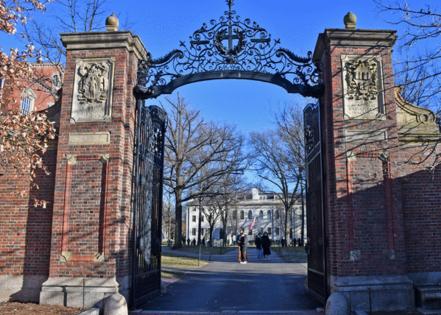Noah Feldman: Here is Harvard's best argument against funding cuts
Published in Op Eds
Harvard University is betting everything on the rule of law. Standing up to President Donald Trump and refusing to accede to unlawful conditions on federal funding is the right thing to do. It’s necessary to defend academic freedom and the future of all American universities as global leaders in the pursuit of truth.
But for the effort to succeed, it’s not enough for Harvard to be right. The legal battle that is just starting will be every bit as important as the strong stand that the university’s president, Alan Garber, laid out in an open letter on Monday.
The courts need to confirm that Trump can’t just cut off funds from universities he doesn’t like on his say-so. Then the Trump administration has to follow the law as laid down by the courts. Yet the path of the law is always full of pitfalls. That’s especially true at this moment, when the Trump administration has been coming dangerously close to open defiance of judicial orders, and the Supreme Court may be heading toward of a direct confrontation with the president.
So what happens next? The first step will be for Harvard — my own university, where I’ve been a professor since 2007 — to go to federal court and ask a judge to order the administration not to freeze $2.2 billion in federal grants to the university, as it announced it was doing on Monday.
Harvard can make several strong legal arguments against the Trump administration’s actions, as were foreshadowed in the letter to the administration sent by Harvard’s lawyers. The strongest, legally speaking, is that Trump cannot rely on Title VI of the Civil Rights Act to cut the funding. The administration has seemed to be doing exactly that, accusing Harvard of tolerating anti-Semitism on campus and stating in its own letter to the University that federal funding “depends on Harvard upholding civil rights laws.”
Title VI says that, before the government can cut funding to a university for violating the anti-discrimination provision, there must be hearing before an independent decision-maker (such as a judge) that concludes the statute was actually violated. That hasn’t happened. To the extent the Trump administration is relying on Title VI, therefore, its freeze is illegal.
The administration won’t be able to convince a court that it can cut funds based on Title VI without following the statute’s required procedure. So it is all but certain to claim that in fact it isn’t relying on Title VI to freeze the funding, whatever it may have previously said. Instead, it will assert some vaguer and more general basis, such as that funding Harvard is not the administration’s priority.
There is a technical argument that Harvard could and should make against this kind of general assertion: that the freeze is arbitrary and capricious, hence in violation of the federal Administrative Procedure Act. Lawsuits challenging Trump administration cuts in grant funding by other agencies, such as the Department Health and Human Services, have made analogous arguments. They have some chance of success. In essence, the APA requires an executive agency to have defensible reasons for its actions. The legal question then becomes whether the Trump administration’s proffered reasons would count.
However, the most resonant, principled argument Harvard can make about the cuts — one it emphasized in its lawyers’ letter — is that the Trump freeze violates Harvard’s First Amendment rights. In essence, Harvard is saying, Trump is trying to condition federal funding on the university speaking the way he wants it to. That’s called an “unconstitutional condition.” The government can’t take away some benefit to which you are entitled on the condition you give up a constitutional right like free speech.
The Trump administration’s demand letter calls, among other things, for an independent auditor to review all Harvard departments to assure “viewpoint diversity.” Such an audit could require Harvard to hire faculty who say specific things the Trump administration wants to have said. That sure sounds like an unconstitutional condition.
Harvard can also deepen its First Amendment argument by saying that the Trump administration has targeted it for speech that took place on campus. That, too, violates the university’s free speech.
Finally, the university can argue that it has a free-association right to admit the students that it wants, consistent with the law — notably the Supreme Court’s decision in 2023’s Students for Fair Admission v. Harvard. The Trump administration’s letter tells Harvard to admit students based on viewpoint diversity, which could also count as First Amendment violation.
The federal courts will have to consider these claims. The issues are almost sure to reach the US Supreme Court, maybe more than once. All universities will be watching closely. The rest of the country should, too.
____
This column reflects the personal views of the author and does not necessarily reflect the opinion of the editorial board or Bloomberg LP and its owners.
Noah Feldman is a Bloomberg Opinion columnist. A professor of law at Harvard University, he is author, most recently, of “To Be a Jew Today: A New Guide to God, Israel, and the Jewish People."
©2025 Bloomberg L.P. Visit bloomberg.com/opinion. Distributed by Tribune Content Agency, LLC.




























































Comments